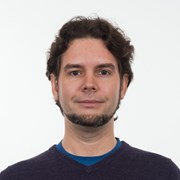Introduction
AQUAEXCEL3.0 is a research infrastructure project funded under the European Union’s Framework Programme for Research and Innovation, Horizon 2020, grant agreement number 871108. AQUAEXCEL3.0 aims to further boost the European aquaculture sector by, among other methods, expanding the Transnational Access programme to support even more external research teams collaborating with its high-quality facilities, providing free training courses on the latest topics and engaging closely with industry to ensure that research is aligned with industry needs.
Similar to the previous AQUAEXCEL (FP7, 2011-2015) and AQUAEXCEL2020 (H2020, 2015-2020) projects, one of the key aspects of AQUAEXCEL3.0 is to provide subsidised access to its top-class aquaculture facilities as well as numerous highly pertinent services for researchers from academia and industry. AQUAEXCEL3.0 will also provide training for transnational access users, aquaculture researchers, technical staff and industry stakeholders.
SINTEF Ocean AS will be involved in both networking activities and joint research activities. The main research activity will be the development of technological tools for improved experimental procedures (WP leader for WP4/JRA1). SINTEF is responsible for the implementation of numerical models developing virtual representations of TNA-infrastructures (Virtual TNA) using an advanced and diversified virtual laboratory with realistic models of aquaculture infrastructures. WP4 will build upon the results of AQUAEXCEL2020 to optimize the use of experimental resources, improve experimental design and test power and provide services directly implementable in TNA facilities.
The specific objectives of WP4 are to develop:
-
An artificial agent supporting users of an extended Virtual Laboratory
-
New methods for post-processing data from state-of-the-art biotelemetry tools
-
Guidelines and tools for the use of nanopore sequencing in the analysing of microbiome samples
This is expected to support the planning and conduction of physical trials for a wide range of species and laboratories, which in turn will reduce resource use and contribute to the accumulation of experience data and decision support systems.
In addition, SINTEF is participating in WP6/JRA2 (Improvement of fish welfare in experiments and industry) by leading the activities on technologies for operations-indicators monitoring in cages with A. salmon and W. seabass by utilizing technological tools such as acoustic telemetric tags, sonar and video.
As a partner in AQUAEXCEL3.0, SINTEF also provides the possibility to perform experiments in industry-scale environments at SINTEF ACE, and access to unique experimental laboratories and field sites as well as collaboration with a group of leading experts on macroalgae cultivation at NSTC.
More information about our infrastructures can be found via these links:
SINTEF ACE
TNA SINTEF ACE
NSTC
TNA NSTC
AQUAEXCEL3.0 TNA Information



Goals
Aquaculture now provides over half of the seafood for human consumption worldwide. To meet the increasing demand for seafood globally, aquaculture is growing annually and has been the fastest growing animal production sector in the world for decades now. However, within the EU, aquaculture production has been lagging behind and there remains a high dependency on imported fish for consumption. The aquaculture industry landscape is also changing, with new consumer preferences, growing concern for environmental and animal welfare issues, new standards and effects of global climate change.
Sustainable growth of the sector can only be achieved through the efficient production of high-value fish products in an environmentally and ethically responsible way, supported by high-level research and innovation. In order for the EU aquaculture sector to maintain its global leadership in aquaculture research and support the sustainable development of the sector, an open and inclusive dialogue between industry, science and policy, as well as between experts across different disciplines is required.
-
AQUAEXCEL3.0 builds on the achievements of the previous AQUAEXCEL (FP7) and AQUAEXCEL2020 (H2020) projects, with the ambition of boosting this effort in a user-centric approach. AQUAEXCEL3.0 will continue to have fish as its main target, but will widen its scope by including shellfish and macroalgae research facilities to push towards lower trophic-level aquaculture.
-
AQUAEXCEL3.0 will help to further boost European aquaculture by integrating 40 top-class research facilities from biology to technology in all types of rearing systems, covering all major EU farmed species as well as promising new species, including at lower trophic levels. The project will expand access to high-quality services and resources, covering all scientific fields relevant to research and innovation in aquaculture. Through a strong partnership, the project will boost excellent research and sustainable innovation for both public and private sectors working in aquaculture. Almost 200 Transnational Access projects are planned over the duration of the 5-year project. These are expected to consolidate the global leadership of European aquaculture research, as researchers will be able to perform their research projects free of charge, with access to infrastructures which are not available in their country of origin.
-
AQUAEXCEL3.0 will also provide online training courses that build upon the newest results and experience from previous courses. In addition, improving the use of animal experiments for research according to Reduction, Refinement and Replacement is integral to the AQUAEXCEL3.0 concept.
Partners
The AQUAEXCEL3.0 consortium is composed of 22 partners from across Europe, and essentially builds on the same consortium from AQUAEXCEL2020. The consortium as a whole is made up of the key aquaculture research facilities in Europe, operated by the most recognised scientific teams, covering all relevant aquaculture systems, environmental, species and complementary scientific expertise. The project is coordinated by INRAE in France. INRAE is France’s new National Research Institute for Agriculture, Food and Environment, created in January 2020. INRAE carries out mission-oriented research for high-quality and healthy foods, competitive and sustainable agriculture and a preserved and valorised environment. Website: www.inrae.fr



